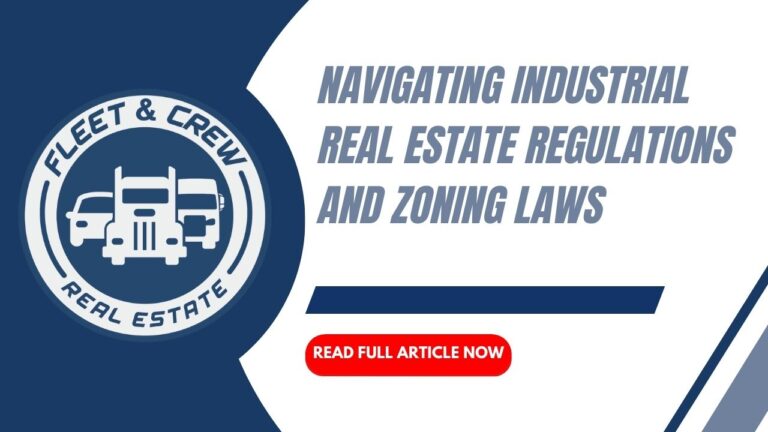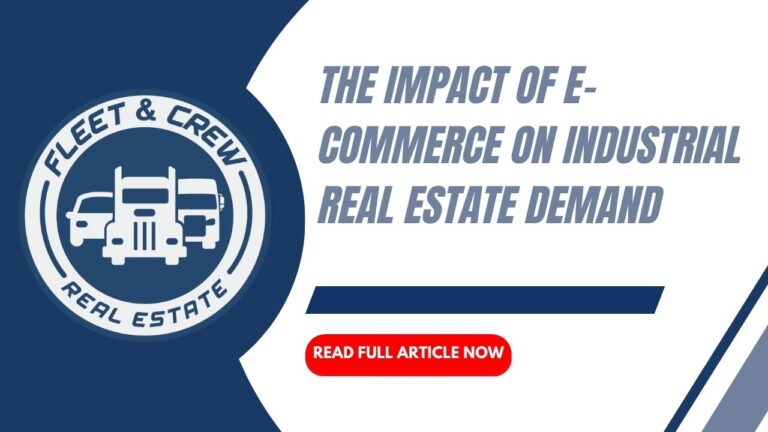Leasing industrial real estate is a significant decision that can have a long-term impact on the success of your business. Whether you are a startup looking for your first warehouse or an established company expanding your operations, it is essential to consider several key factors before signing a lease agreement. In this blog post, we will explore the crucial factors that should be taken into account when leasing industrial real estate, helping you make an informed decision that aligns with your business goals.
- Location
The location of an industrial property plays a pivotal role in the success of your operations. Consider proximity to major transportation hubs, highways, and airports, as well as access to a skilled labor pool. A well-located property will streamline your supply chain, reduce transportation costs, and improve overall efficiency. Additionally, evaluate the availability of local amenities and services that are essential to your business, such as utilities, infrastructure, and local regulations.
- Size and Layout
Assessing the size and layout of the industrial space is crucial to ensure it meets your current and future operational needs. Consider factors such as ceiling height, floor load capacity, column spacing, and the number and size of loading docks. Determine whether the layout of the space allows for efficient workflow and the installation of necessary equipment or machinery. It is also important to consider the potential for expansion or reconfiguration if your business requires flexibility in the long run.
- Infrastructure and Utilities
Industrial operations often require specialized infrastructure and utilities to function optimally. Evaluate the availability and reliability of utilities such as electricity, water, gas, and telecommunications. Ensure that the property’s electrical capacity can meet your equipment and machinery requirements. If your operations involve specific infrastructure needs, such as high-speed internet or specialized ventilation systems, confirm that the property can accommodate them.
- Zoning and Permits
Verify that the industrial property is appropriately zoned for your intended use. Industrial properties may have specific zoning restrictions, such as noise regulations or limitations on certain types of activities. Additionally, consider any permits or licenses required for your business operations and ensure that the property complies with local regulations. It is advisable to consult with a legal professional or a local zoning authority to understand the zoning and permitting requirements.
- Lease Terms and Conditions
Thoroughly review the lease terms and conditions before signing any agreement. Pay attention to critical details such as lease duration, renewal options, rental escalations, and termination clauses. Understand the responsibilities and obligations of both parties regarding property maintenance, repairs, and insurance. Seek clarification on any potential hidden costs or fees, such as common area maintenance (CAM) charges or property taxes. It is advisable to consult with a real estate attorney to ensure that the lease agreement protects your interests.
- Financial Considerations
Leasing industrial real estate involves financial considerations beyond the monthly rent. Evaluate the total cost of occupancy, including utilities, property taxes, insurance, maintenance costs, and any additional expenses associated with the property. Assess your budget and determine if the lease terms align with your financial capabilities. Consider the potential for rent increases over the lease term and factor in any planned expansions or modifications that may incur additional costs.
- Landlord Reputation and Support
The reputation and support of the landlord or property management company can significantly impact your leasing experience. Research the landlord’s track record, responsiveness, and reputation in the industry. Engage in open communication with the landlord to understand their approach to property management, maintenance, and tenant relations. A proactive and supportive landlord can ensure a smooth leasing process and address any issues that may arise during your tenancy.
- Future Growth and Flexibility
Consider your business’s growth projections and evaluate whether the property can accommodate your future expansion plans. Assess the flexibility of the lease agreement, including options for expansion, subleasing, or termination if your business needs change. Understanding the property’s scalability and the landlord’s willingness to accommodate your evolving requirements is essential for long-term success.
Leasing industrial real estate requires careful consideration of various factors that can impact your business operations and bottom line. By evaluating the location, size, layout, infrastructure, lease terms, financial considerations, landlord reputation, and future growth potential, you can make an informed decision that aligns with your business goals. Remember to seek professional advice from real estate experts and legal professionals to ensure a smooth and successful leasing process.




